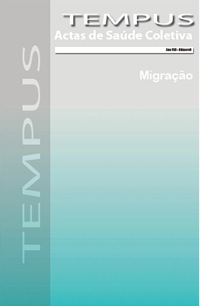Abstract
Part of the doctoral research “Rasgo: a arte de engendrar espaços” was held in France, linked to the Parallel Lives Project Migrant: Perspectives Brazil - France (PVPM), coordinated by the Indigenous and the Worker Health Laboratory of the Program of Post-graduation in Collective Health, University of Brasilia. The interdisciplinary research between Art and Collective Health through imagery produced in France by migrants, pointed to the rip as a common procedure to the two disciplines, distants a priori. The rip is an art procedure that is characterized by a movement of crossing of limits for the creation of spaces, while the methodology of the PVPM seeks, among other objectives, the production of knowledge and the transposition of obstacles. This is also the migrant's attitude towards the frontier, his goal is to overcome it. If we think that the dominant aesthetic and political systems of mass production and distribution of images of migrants are a limit to identity plurality, how do the practices of collective image production of the PVPM collaborate to dissolve this limit? Our objective is to demonstrate how the images produced in the crossings between Art and Collective Health in the Project Migrant Parallel Lives rip the systems of homogenization of identity.
A Tempus garante critérios rigorosos, por meio de avaliação sistemática. Os autores se responsabilizam pela veracidade e ineditismo do trabalho cabendo a eles a cessão de direitos de publicação à revista. A confiabilidade dos conteúdos e a marca própria de apresentação tem como objetivo uma comunicação personalizada, adaptada aos padrões da revista, na medida em que adota critérios de excelência exigidos por seus usuários e especialistas, considerando os rigores da comunicação científica. Os autores devem especificar sua contribuição individual na concepção, delineamento, execução do trabalho, análise ou interpretação dos dados, redação e aprovação final do manuscrito. Incluir Fontes de financiamento e de apoio logístico das pesquisas. Ao final da submissão do artigo, os autores devem enviar uma declaração de cessão de direitos de publicação à Revista TEMPUS , assinada e no formato PDF (Portable Document Format ): Modelo da declaração de cessão de direitos.
